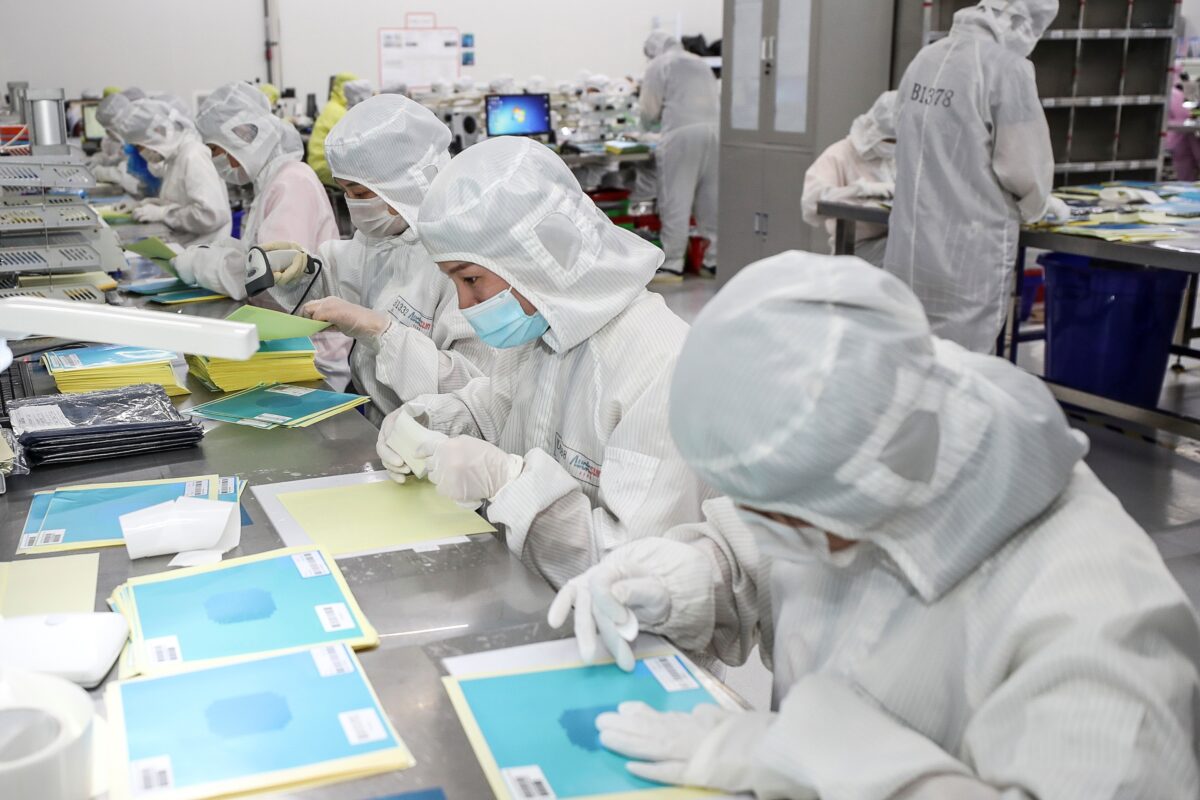Mass bankruptcies in China’s semiconductor industry jumped in 2022, sparked by U.S. sanctions and China’s economic downturn, which will make it difficult for China’s chip sector to recover, experts say.
As many as 5,746 Chinese chip companies were deregistered in 2022, a 68 percent increase from 3,420 in the previous year, Chinese media Titanium Media App reported on Feb. 16. That’s about 15 chip companies every day, on average.

The reasons for the closures include inexperienced operators who joined the semiconductor business in a rush and, once finding it unprofitable, closed their doors, according to an analysis published on Feb. 17 by Chip Language, a website that focuses on the semiconductor industry in China. U.S. export controls on Chinese semiconductors also had a significant effect on the performance and confidence of the Chinese firms.
Yangtze Memory, China’s leading flash memory manufacturer, has reduced its production volume and planned to lay off 10 percent of employees two months after being included on Washington’s “entity list” of export control in December. Its plan for a new factory in Wuhan has also been suspended.
US Tightens Export Control
Liu Pei-chen, director of the Industrial Economics Database of the Taiwan Institute of Economic Research, told The Epoch Times on Feb. 18 that the first reason for the large-scale bankruptcy of Chinese chip companies is the U.S.–China technology war. The United States’ various export controls on China’s semiconductors continued to tighten last year. Even if Chinese companies have subsidies from the government, their overall operations will be shut down.
The Chinese Communist Party has engaged in technology theft for many years. On Aug. 9, 2022, President Joe Biden officially signed the CHIPS and Science Act 2022. In addition to promoting the development of the domestic semiconductor industry, it stipulates that chip companies that have received subsidies from the U.S. government are not to be allowed to invest in the semiconductor industry in China.

On Oct. 7, 2022, the U.S. Department of Commerce announced a series of chip export control measures, including that U.S. companies aren’t allowed to export advanced chips and related manufacturing equipment to China unless they obtain government permission; chips manufactured in other countries using U.S. technology are also subject to this regulation. In addition, American technical personnel are prohibited from developing and producing advanced chips in China.
Liu told The Epoch Times that the relationship between the United States and China is still relatively tense, and the United States’ control over China’s semiconductors will continue to increase in the future. Other countries are also facing the problem of choosing sides between the United States and China. If Chinese chip companies want to find some resources overseas, whether it is cooperation in talent or technology, they will face difficulties.
Henry Wu, an economist in Taiwan, told The Epoch Times on Feb. 18 that because all the key technologies of chips are outside mainland China, China hasn’t established its own industrial system to produce them, yet.
Wu said that the production process of the entire semiconductor industry is divided into many stages, each stage has a different country that has a leading advantage, but no one can lead the entire process except U.S. companies. There’s no way for China to break through this situation.
“Under this competitive situation, China must cooperate with the United States to improve Sino–U.S. relations before it is possible to develop its semiconductor industry. But Xi Jinping is now fighting against the United States and wants to compete for world domination, so, of course, the United States is blocking Chinese companies on semiconductor development,” he said.
Economic Downturn
Liu said that the second reason for the mass bankruptcies in China’s chip industry is the downturn of China’s economy.
“Last year, China continued to implement “Zero-COVID” controls, including lockdowns. In addition to affecting the production side, more importantly, it had a major negative effect on the demand side, including PC consumer electronics and smartphones. The overall economic performance last year was relatively poor, so we saw that last year China’s economic growth rate is only around 3 percent.”
Ning Haiphong and Luo Ya contributed to this report.
From The Epoch Times

